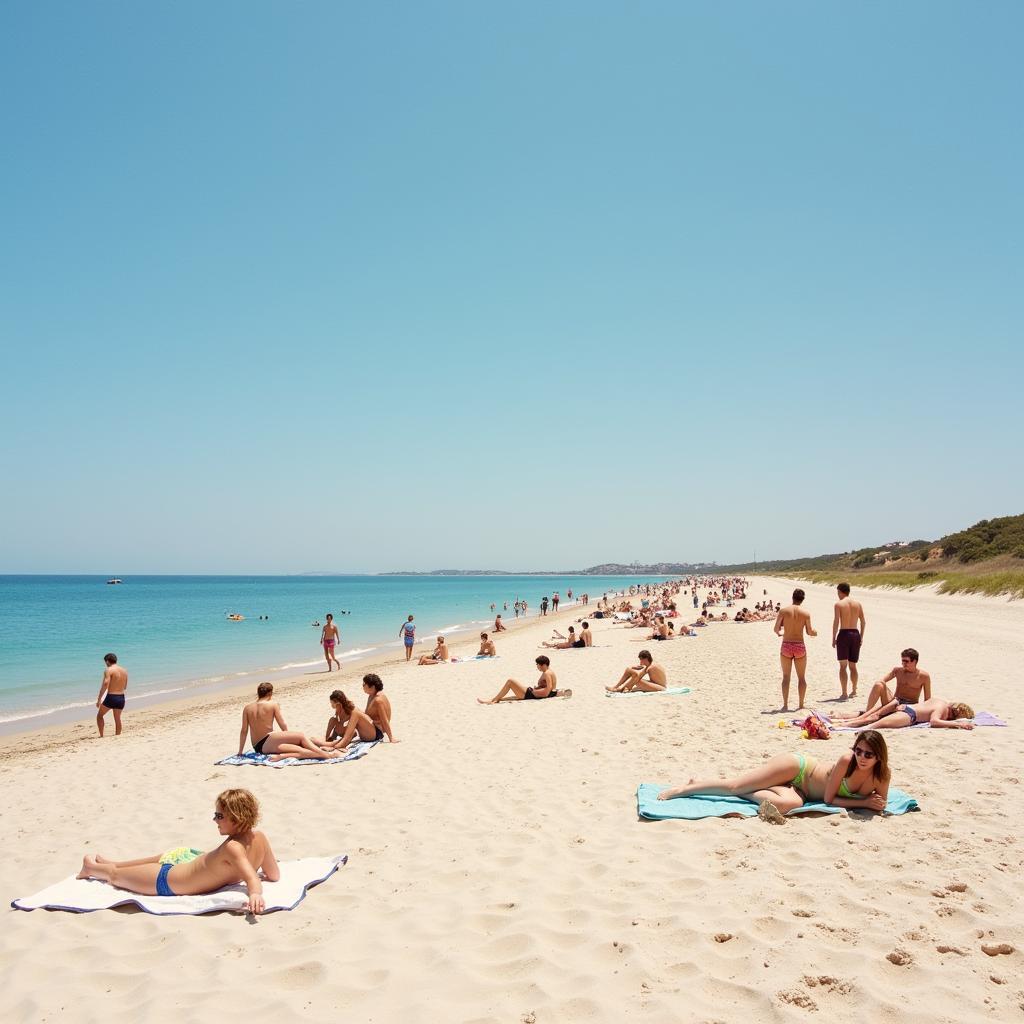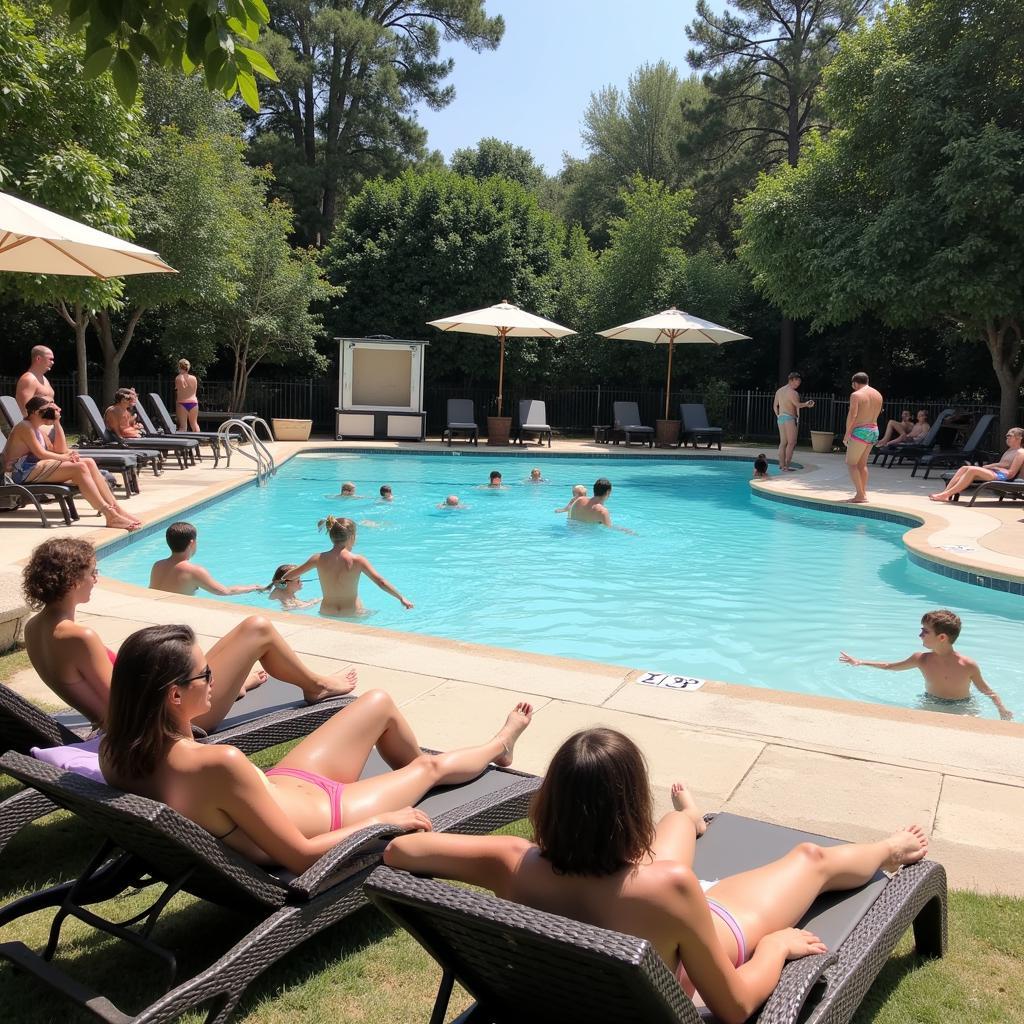Understanding Nude Tanning: A Comprehensive Guide
October 14, 2024Nude Tanning, often referred to as naturism or au naturel tanning, involves sunbathing or using tanning beds without wearing any clothing. While it might seem straightforward, there are many aspects to consider, from potential benefits and risks to practical advice and etiquette. This guide explores everything you need to know about nude tanning.
Why Choose Nude Tanning?
People choose nude tanning for various reasons, including:
- Even Tan: Avoiding tan lines is a primary motivator. Clothing creates barriers, resulting in uneven skin tone. Nude tanning allows for complete exposure to sunlight or UV rays, promoting a uniform tan.
- Vitamin D Absorption: Sunlight stimulates Vitamin D production, essential for bone health and immune function. Nude tanning maximizes skin exposure, potentially boosting Vitamin D levels more effectively.
- Natural Feeling: Many individuals find liberation and a sense of freedom in being naked outdoors. It can be a way to connect with nature and embrace their bodies.
- Social Aspect: Naturist communities and designated beaches provide social environments where people can comfortably tan nude without judgment.
Potential Risks and Considerations
While nude tanning offers benefits, it’s crucial to be aware of the potential risks:
- Sunburn: Sunburn is a significant concern, especially for beginners. Without clothing as a barrier, the skin is more vulnerable to UV damage.
- Premature Aging: Excessive sun exposure accelerates skin aging, leading to wrinkles, fine lines, and age spots.
- Skin Cancer: Prolonged and unprotected sun exposure significantly increases the risk of skin cancer.
- Privacy Concerns: Nude tanning requires a safe and private environment to avoid legal issues and ensure personal comfort.
Practicing Nude Tanning Safely
To enjoy nude tanning safely, follow these guidelines:
- Gradual Exposure: Start with short periods (10-15 minutes) and gradually increase exposure time as your tan develops.
- Sun Protection: Always apply broad-spectrum sunscreen with an SPF of 30 or higher, even on cloudy days.
- Timing is Key: Avoid sunbathing during peak hours (10 am to 4 pm) when UV rays are strongest.
- Stay Hydrated: Drink plenty of water throughout the day to prevent dehydration, especially during and after sun exposure.
- Choose Designated Areas: Opt for naturist resorts, private beaches, or other designated areas where nude tanning is permitted and safe.
Nude Tanning Etiquette
If you’re new to nude tanning, understanding proper etiquette is essential:
- Respect Boundaries: Be mindful of others and maintain a respectful distance. Avoid staring or making others uncomfortable.
- Hygiene Matters: Shower before and after sunbathing, and use a towel to sit or lie on.
- Photography Rules: Respect the privacy of others and refrain from taking photos without consent.
- Follow Community Guidelines: If you’re at a naturist resort or designated area, familiarize yourself with their specific rules and regulations.
 People sunbathing nude on a beach
People sunbathing nude on a beach
Finding Nude Tanning Locations
- Naturist Resorts: Many resorts worldwide cater specifically to naturists, offering a safe and welcoming environment for nude sunbathing.
- Designated Beaches: Certain beaches are designated as clothing-optional or naturist-friendly. Research local regulations and guidelines before visiting.
- Private Property: Tanning nude in your backyard or private property is generally acceptable, provided it’s legal in your area and you have adequate privacy.
 People relaxing by a pool at a naturist resort
People relaxing by a pool at a naturist resort
Conclusion
Nude tanning offers a unique way to achieve an even tan and connect with nature. However, responsible practices are paramount to minimize risks and ensure a positive experience. By prioritizing sun safety, respecting etiquette, and choosing designated areas, you can enjoy the potential benefits of nude tanning while protecting your health and well-being.
Disclaimer: This information is for general knowledge and informational purposes only and does not constitute medical advice. Consult with a qualified healthcare professional for any health concerns or before making any decisions related to your health or treatment.
Need assistance or have questions? Contact us:
Phone: +84 915 117 113
Email: [email protected]
Address: To 3 Kp Binh An, Phu Thuong, Viet Nam, Binh Phuoc 830000, Vietnam
Our dedicated customer support team is available 24/7 to assist you.